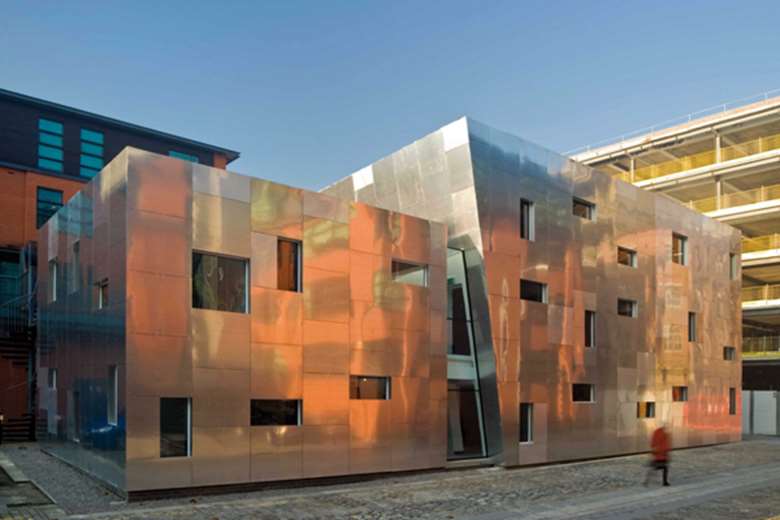42nd Street
Adam Offord
Tuesday, July 5, 2016
Manchester-based charity that runs a wide range of programmes to support young people experiencing mental health difficulties.

- Manchester charity supports some of the most hard-to-reach groups of young people
- Offers young people one-to-one and group therapeutic programmes
- Allows self-referrals and has strong links with local statutory agencies
Action
42nd Street is a mental health charity established more than 35 years ago, that supports young people aged from 11 to 25 who are experiencing mental health difficulties across Greater Manchester.
The charity targets young people at higher risk of poor mental health such as lesbian, gay, bisexual, transgender and questioning (LGBTQ) young people; those with disabilities; young parents; young carers; and the black and minority ethnic (BAME) community.
Young people from these groups can access several mental health services including needs assessments, counselling and psychotherapy, and one-to-one support. They can also take part in youth engagement projects, creative programmes, advocacy and volunteering opportunities.
Engaging young people from the BAME and LGBTQ communities is important because research has shown both groups face particular pressures that can prevent them seeking help.
For example, mental health stigma in the BAME community can put young black men off seeking help early, while LGBTQ young people are often more focused on exploring their sexuality.
Chris Jacob, head of service at 42nd Street, says that abusive family upbringings, bullying, trauma and stress are factors in poor mental health across all groups they see. However, she says the charity's emphasis is on shaping the service around what the young person wants and needs.
She says BAME and LGBTQ young people are referred to the charity by child and adolescent mental health services or GPs for an initial assessment and meeting with one of the charity's practitioners. Other agencies such as youth work, youth offending teams and adult services can also refer, as can young people themselves.
Practitioners will do an assessment of a young person's needs, protective factors and risk factors in their life and consider the support they are currently receiving when identifying what support would be beneficial.
Weekly one-to-one sessions over six weeks focus on the importance of getting early help for young people starting to experience difficulties, while another six-week programme may be put in place for those in urgent need of support and containment.
Other one-to-one support programmes run for up to 20 sessions, particularly if a BAME or LGBTQ young person struggles to engage, and there are also different forms of counselling and therapy such as cognitive behavioural therapy or integrated therapy, but the length of these sessions varies. Young people can also sign up to group work sessions.
"Someone could access initial support with a worker one-to-one, but at the end of that decide that they would like to try a group programme or they could just come straight onto a group programme," Jacob explains.
"The emphasis is very much on listening to what the young person is saying in that first meeting and it is the practitioner's role to help them sift through the issues.
"Group work can be challenging for anyone of any age and most people who get referred expect one-to-one support, but what they know less about is what they can get from being part of a group."
She explains that hard-to-reach young people such as BAME and LGBTQ young people can be difficult to engage with and group work can be a great way of getting them to open up.
Research has shown that young black men prefer to talk to other young men or adults who may have experienced mental health difficulties, and Jacob explains the charity has tried to shape its provision to take account of this. It has recruited "women-only work posts and men-only work posts" to help with certain group projects, as well as having a youth panel and recruiting ex-service users to the trustee board, she adds.
The charity has 30 full-time members of staff as well as part-time staff, who are all recruited to a mental health practitioner role and are from fields including counselling, psychotherapy, social work, youth work and the arts. There is also a counselling and therapy team, incorporating cognitive behavioural therapists and integrative therapists.
They are supported from income of £1.2m per year, which is sourced from clinical commissioning groups, charity grant funding, local authorities and donors.
Jacob says there are advantages to being a voluntary service over a statutory service such as accepting self-referrals and giving young people a voice. "It is about complementing the different support to meet the needs of young people," she adds.
Impact
According to 42nd Street's 2013/14 annual report, a total of 1,047 young people were contacted and offered support over the course of the year. Nearly three-quarters were from Manchester, while 14 and 12 per cent were from the neighbouring boroughs of Trafford and Salford respectively.
Most young people to receive support were aged 17 to 20, but some were under 16; 67 per cent of young people helped were female, 32 per cent male and one per cent transgender.
Feedback from young people was positive, with a 17-year-old unnamed male stating he feels in "a much better frame of mind to start a new college" and he "couldn't have got here without" 42nd Street support.
A 23-year-old female said: "I've never let myself talk about things and being able to do this has been really helpful."
Another 17-year-old male commented: "I have become more outgoing, sociable and developed more motivation. I have dealt with grief and improved relationships with my family. I have also improved my body image."




